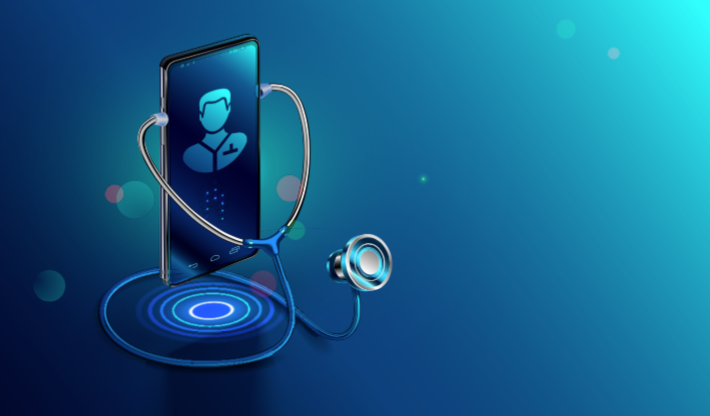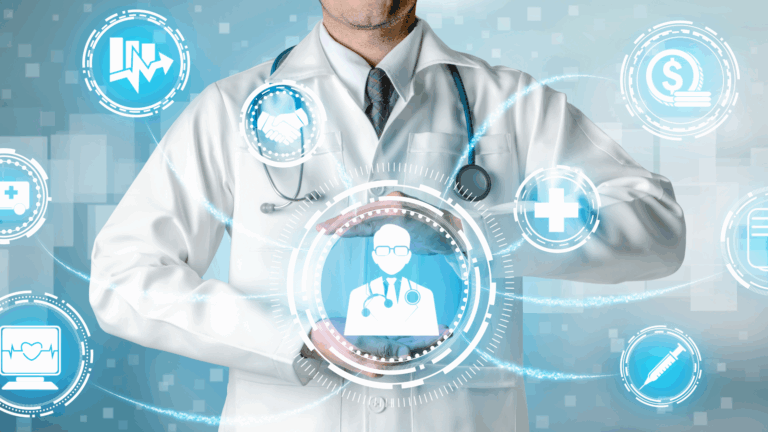As everything is always modernizing in society, naturally, there are always new technological trends for health plan operators. In this aspect, it is essential to always be up to date with them. If before, some health demands already seemed to take important steps towards digital transformation and its possibilities, with the pandemic they took an even more significant leap, becoming essential for your health plan operator to remain increasingly competitive. .
Whatever the case, it is always important to take the following aspects into consideration:
- The possibility of a more complete service;
- Simplification of activities of operators in the sector;
- Guarantee of greater satisfaction with services;
- Insertion of technology in favor of better control and consequent reduction in care costs;
- Centralization of management information to improve performance;
- Importance of real-time assessment and monitoring of healthcare costs.
Therefore, certain technological trends for health plan operators arrive to increasingly revolutionize the routine.
See too: Intelligent Management of Medical Accounts for Healthcare Operators
Technological trends for health plan operators to put into practice
To keep you up to date with everything innovation possibilities, We bring you a list of possibilities.
In fact, many of them are already actively part of the routine of several companies that deal with the operation of health plans in Brazil.
Telemedicine
In general, we can say that the COVID-19 pandemic was one of the factors in the popularization of this service. In practice, this involves remote medical care, which allows certain diagnoses and even interpretation of exams.
The great benefit of this technology for business is precisely how much more accessible it makes service. We can list the following reasons:
- Ensures safer service in times of pandemic;
- Provides greater comfort and convenience to patients;
- Allows access to care for those who live in more isolated areas;
- Increases service capacity and dynamism.
Support with virtual assistants
With the implementation of virtual assistants, many people take advantage of the convenience offered by smartphones. After all, different operating system assistants are proving to be increasingly practical. The good news is that technology virtual robots goes beyond operating systems. Nowadays, several companies adopt it in their favor.
In general, the virtual assistant It helps the public a lot when navigating health plan websites and apps. It turns out that a simple voice or text search already leads quickly. What's more: an assistant can maintain a virtual conversation and still have the personality that best suits the audience.
The best part is that this type of technology always feeds itself with new data. Therefore, the service becomes more and more precise every day.
Virtual Reality treatment
One of technological trends for health plan operators that has been talked about for some time is the virtual reality. It turns out that it is already widely used by a portion of the population for entertainment purposes. Have you seen those fun ones? augmented reality glasses?
The incredible news is the combination of this technology for medical treatments and other therapeutic purposes. In other words, the development of gamifications with virtual reality to enable these practices.
There are the following possibilities when dealing with this technology:
- Playful alternative to physiotherapy and occupational therapy;
- Allied with specific treatments for pain relief;
- Helps with anxiety, phobia treatments, etc.;
- Assistance in treating mental disorders.
In any case, the technology is very interesting because it allows patients greater comfort, especially as they can combine treatment with entertainment.
Internet of Things (IoT)
The concept of Internet of Things (IoT) has gained prominence in different business models. In short, the application of the concept involves objects and mechanisms that talk to each other through the wireless network. In this case, it may be a possibility for operators to offer certain innovative services.
In this case, we can mention objects such as bracelets, watches and other smart items that can monitor blood pressure, heart rate, etc.
The use of this type of technology can be very useful for cross-checking patient data. And the best: keep a real-time record of how they are doing.
Big Data and BI
When dealing with end customers and health networks, health plan operators accumulate a lot of data. Has all this collected data been properly interpreted and used? Or is most of it just volume?
The purpose of Big Data in the context of Industry 4.0 is precisely dealing with these high volumes of data. However, as already said, it is not just about accumulating, but about transforming them into something useful.
Hence, the concept of Business Intelligence (BI), theThat is, we have the following aspects:
- Refinement of the high volume of data collected;
- Analysis and interpretation of what they really represent;
- Development of strategies based on interpretations;
- More efficient use of collected data.
Looking at the practices of healthcare providers, they would have more concrete mechanisms for different activities. Here are some of them:
- Identification of prominent characteristics in a given population;
- The true demands of each region;
- Development of specific disease prevention programs by location;
- Cost comparisons by clinics and different agents involved;
- Investigating and combating fraud in health plans.
Medical Bill Audit System
Serving as a hook for the application of Big Data and BI, there is the use of an audit system. In this case, the Medical Bill Audit System helps to more precisely target resources. Surprisingly, it can even reduce 30% of input costs, hospital daily and home care.
It turns out that this type of system provides the following aspects:
- Registration and on-site monitoring of inputs used by the networks;
- Remote management of patients who must be monitored;
- Monitoring diagnostic information during patient stays;
- Cost reduction through better targeting of services and inputs.
Following technological trends for health plan operators
As previously stated, certain technological trends for health plan operators they have already gained a lot of strength, therefore, keeping up to date with them can provide interesting competitive advantages for operators in action.
And, even more important: it could be a great chance to finally allocate resources and efforts more efficiently.
Would you like to put a medical audit system into practice? Get in touch now and request your quote!









